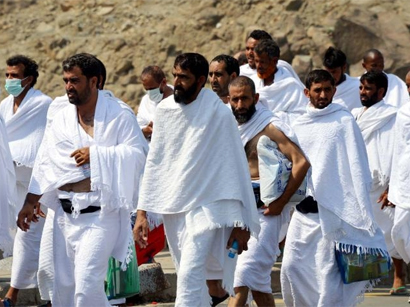Muslim pilgrims attending the annual haj in Saudi Arabia were at "very low" risk of contracting a deadly SARS-like coronavirus, the World Health Organization said Thursday, dpa reported.
Travel restrictions and special border checks were therefore not needed, it said, stressing that "the risk to an individual pilgrim of contracting MERS-CoV is very low."
The Middle East Respiratory Syndrome - Coronavirus (MERS-CoV) has been slowly spreading in parts of the Middle East. But scientists have not been able to find out exactly how the virus spreads.
The new virus is similar to the SARS virus, which killed at least 800 people in 2002 and 2003. MERS patients suffer from pneumonia-like symptoms that can lead to kidney failure in severe cases.
So far, 90 cases and 45 deaths have been reported since the virus started spreading from Arab countries in September. Sporadic outbreaks have been limited to Jordan, Saudi Arabia, Qatar and the United Arab Emirates.
Travelers have carried the virus to Tunisia, Italy, Germany, France and Britain.
The WHO on Thursday also issued guidelines for pilgrims, such as following common hygiene rules and monitoring their health to curb the spread of MERS during the upcoming pilgrimage season.
The Geneva-based organization said chronic illnesses such as diabetes, lung disease or a weakened immune system could increase the risk of contracting MERS.
Travellers with such problems should therefore seek medical advice before making the trip to the holy site of Mecca.
The health body recommended that pilgrims should only eat cooked food and avoid contact with animals.
Travellers who develop severe respiratory illness with fever and cough should stay away from others and should see a doctor. Those who fall ill within two weeks after returning home should report to health authorities, WHO said.






